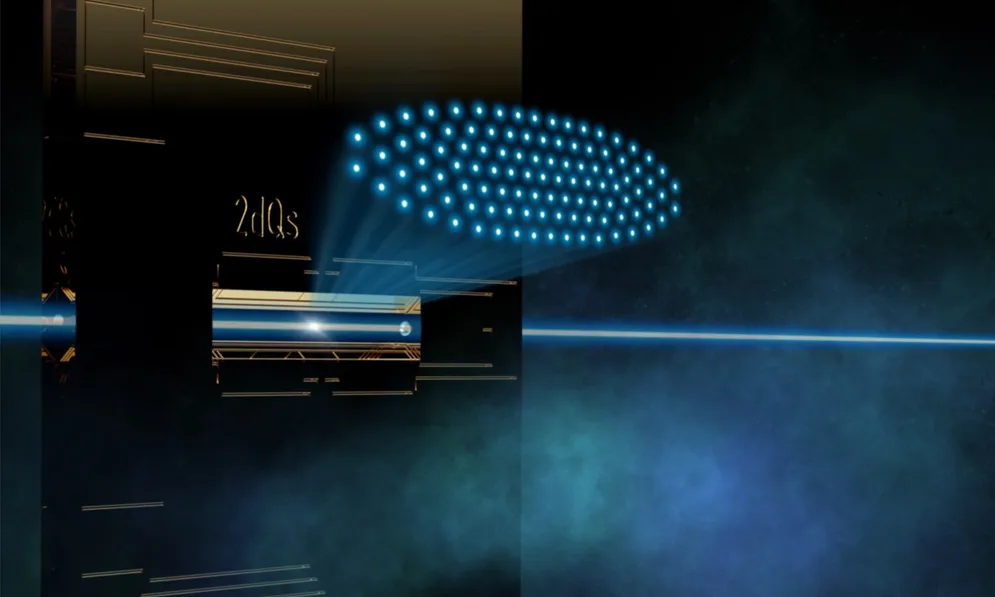Mar 5 2024Reviewed by Lexie Corner
Quantum sensor technology has the potential for even greater precision in measuring physical quantities.
 Up to 91 atoms form a sensor network that enables even more precise measurements of physical phenomena thanks to a new method. Image Credit: Helene Hainzer
Up to 91 atoms form a sensor network that enables even more precise measurements of physical phenomena thanks to a new method. Image Credit: Helene Hainzer
A group of researchers headed by Christian Roos at the University of Innsbruck has compared signals of nearly 91 quantum sensors, effectively eliminating environmental interference-induced noise. Correlation spectroscopy provides the option to enhance the accuracy of sensor networks.
Quantum systems utilized in quantum technologies, such as single atoms, are highly sensitive. Interactions with the environment will trigger system changes, resulting in errors. However, this sensitivity is a distinctive advantage, as it allows quantum sensors to outperform traditional sensors in terms of precision, particularly in measuring gravitational or magnetic fields.
Noise Cancellation Using Correlation Spectroscopy
Noise, defined by fast interactions between the sensor and the environment, can mask the intricate quantum properties necessary for sensing. This disruption renders the quantum signal incomprehensible, hindering the sensor’s ability to function effectively.
In a new study, physicists under the leadership of Christian Roos from the Department of Experimental Physics at the University of Innsbruck, along with partners in the United States and Israel, report a process for rendering this information available again with the help of “correlation spectroscopy.”
Here, the key idea is that we do not just use a single sensor but a network of up to 91 sensors, each consisting of a single atom. Since noise affects all sensors equally, analyzing simultaneous changes in the states of all sensors allows us to effectively subtract the environmental noise and reconstruct the desired information. This allows us to precisely measure magnetic field variations in the environment, as well as determine the distance between the quantum sensors.
Helene Hainzer, Study First Author, University of Innsbruck
This method is versatile and can be applied to a variety of other sensing operations and experimental platforms.
Precision Increases with the Number of Sensors
Previously, correlation spectroscopy has been used with two atomic clocks, enabling greater precision in measuring time.
Our work marks the first application of this method on such a large number of atoms. In order to establish experimental control over so many atoms, we built an entirely new experimental setup over several years.
Christian Roos, Study Lead Author, Department of Experimental Physics, University of Innsbruck
In their study, the Innsbruck researchers demonstrate that as the number of particles in the sensor network increases, the accuracy of the sensor measurements also increases. Remarkably, entanglement—traditionally employed to improve quantum sensor precision but tough to produce in the lab—fails to offer a benefit compared to the multiple sensor networks.
The study has been reported in the journal Physical Review X and was funded by the Austrian Science Fund FWF, the European Union, the Austrian Federal Ministry of Education, Science and Research, and the Federation of Austrian Industries Tyrol, among others.
Journal Reference:
Hainzer, H., et al. (2024) Correlation spectroscopy with multiqubit-enhanced phase estimation. Physical Review X. doi:10.1103/PhysRevX.14.011033.
Source: https://www.uibk.ac.at/en